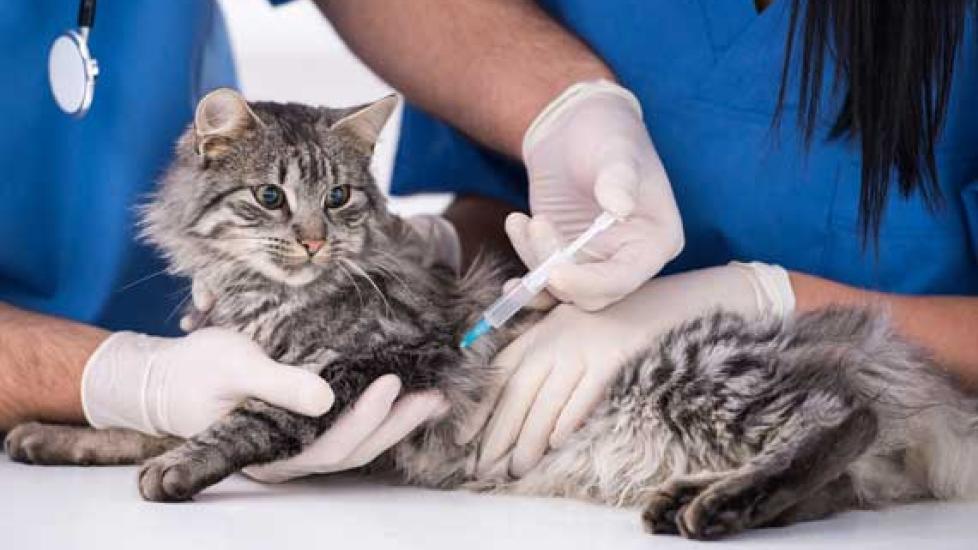Do Biopsies Cause Cancer to Spread?
Many times I am referred a patient where there is a strong suspicion of cancer, but a definitive diagnosis has not yet been achieved.
Whether a mass was palpated externally, visualized on a radiograph, or seen arising from tissue within the mouth, concern is raised that the cause of the growth is cancer, and the recommendation is made to seek oncological care.
After evaluation of the patient, I generally advise one of three procedures to determine a definitive diagnosis: a fine needle aspirate (FNA), an incisional biopsy, or an excisional biopsy.
Obtaining samples from a tumor, whether by a FNA or biopsy, is an essential step most of our cancer patients will undergo. The level of invasiveness required to perform such tests depends on where the tumor is located anatomically.
For tumors located within or just below the skin, FNAs or biopsies can be routinely performed, and with minimal invasiveness.
For internal tumors, for example those located within the abdominal or chest cavity, FNA or biopsy is still generally considered a routine procedure. Most often these procedures are done via ultrasound guidance in order to maximize diagnostic yield.
In some cases, a more intensive surgical procedure is necessary. This includes laparoscopic surgical procedures, which are considered minimally invasive. The benefit to this form of surgery is it requires tiny incisions; therefore recovery is rapid. The downside to laparoscopic surgery is it does not allow for complete evaluation of the entire cavity in question and therefore does not substitute for full exploratory surgery.
Open thoracic or abdominal surgery entails creating a large incision. This method can procure biopsy samples by either taking small pieces from the affected tissue(s) or by removing tumors in their entirety (e.g., tumors of the spleen can be removed during a splenectomy surgery). This type of surgery also allows for complete visualization of the entire cavity in question, which is essential for examining for evidence of other abnormalities or potential spread of disease.
One of the first questions I’m asked by worried owners when I mention the words “aspirate” or “biopsy” is, “Won’t the act of performing that test cause the cancer to spread?”
Oncologists generally consider this line of thinking to be a “myth,” meaning something that is widely believed but false in origin. What’s interesting is our lack of ability to say with certainty that this is really a myth (versus an understudied phenomenon).
A recent large-scale study at the Mayo clinic in Fort Lauderdale, Florida, was designed to answer the question of the risk of spreading cancer associated with a biopsy procedure. In this study, researchers looked at the outcome for patients with non-metastatic pancreatic cancer who either did or did not undergo a FNA prior to more definitive surgery for their tumors.
Results showed patients who underwent an aspirate procedure actually had a better outcome than those who did not, with an overall survival time of 22 months compared to 15 months. Though numerically unimpressive, the results were statistically significant.
Researchers concluded that the act of procuring a sample from the tumor was not associated with spread of disease. Additionally, previously reported isolated case reports of instances where tumors did spread following a biopsy or aspirate procedure should be considered such rare events that the risk does not out-warrant the benefit.
Another study examined the relationship between FNA, incisional, or excisional biopsy of a specific form of breast cancer, and the risk of spread of the tumor to a regional lymph node. This study contradicted the Mayo clinic’s results. Researchers found a correlation between “fine-needle aspiration and an increase in the incidence of sentinel node metastases.”
What conclusions can we draw from the opposing results of these two studies? The answer lies in the inference.
After reading the Mayo clinic’s report, it’s easy for a reader to decide biopsy procedures are safe and possess a low rate of complications. More importantly, they may even go as far as to infer that refusing a biopsy or surgery out of fear of causing spread of cancer could worsen a pet’s outcome. Is this exactly what the paper states? No, but if given the latitude of “reading between the lines,” such statements wouldn’t be stretching the truth all that far.
The results of the breast cancer study tell a reader there may be an association between the act of physically manipulating a tumor and the presence of tumor cells within lymph nodes that drain the area where the tumor is located. If they were to make such an inference, they would not be saying aspiration caused the tumor cells to spread, but rather acknowledging a correlation between the two events.
When objectively evaluating studies with disparate results, it’s easy to understand why confusion persists in the general public regarding complicated medical issues. Unfortunately, this situation abounds in research. This is likely one of the main reasons why myths and misconceptions regarding cancer are so prevalent in both animals and people.
My take on these less than clear-cut situations is to allow clinical experience to guide me in bridging the gap between the myths and the statistics. Inference is good, but it won’t help me make recommendations to a distraught owner who is nervous about their pet’s care.
If you’re wondering what my opinion is when it comes to concerns about a FNA or biopsy resulting in spread of cancer, my familiarity with these procedures and their risk tells me the myth is incorrect. I will continue to await the evidence that strongly points toward a causal relationship between the two events.

Dr. Joanne Intile
Resource:
Image: VGstockstudio / Shutterstock
